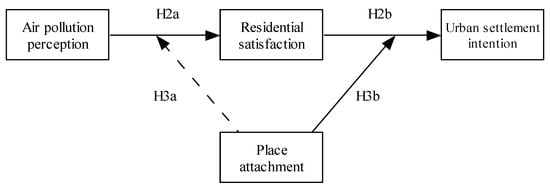With the public paying more and more attention to the problem of air pollution, the impact of air quality on migration has gradually become a growing concern. The concept of talent urban settlement intentions is the willingness of talent to work and live in a city for a long time. From this concept we can regard “settlement intentions” as a kind of attitude and behavior tendency, which reflects a comprehensive evaluation of talent from various aspects of a city and is a good indicator of a city’s ability to retain talent. A comprehensive analysis of the influencing factors of the willingness of talent to settle down can help city administration understand what such talent need from the city and thus enact targeted and efficient public policies and provide public goods. As environmental hazards, e.g., air pollution, have become increasingly serious, more individuals consider air quality an important factor when choosing a place of residence (for physical and mental health purposes). Young talent are more sensitive and concerned about air pollution, and that this may consequently influence their choice of cities when seeking long-term employment.
- air pollution perception
- young talent
- urban settlement intentions
1. Impact of Air Pollution Perception on the Urban Settlement Intentions of Young Talent
2. The Mediating Role of Residential Satisfaction between Air Pollution Perception and the Urban Settlement Intentions of Young Talent
2.1. Air Pollution Perception and Urban Residential Satisfaction
2.2. Residential Satisfaction and the Urban Settlement Intention of Young Talent
2.3. Residential Satisfaction Plays an Intermediary Role in the Impact of Air Pollution Perception on the Urban Settlement Intentions of Young Talent
2.4. The Moderating Role of Place Attachment in the Relationship between Residential Satisfaction and Urban Settlement Intentions

